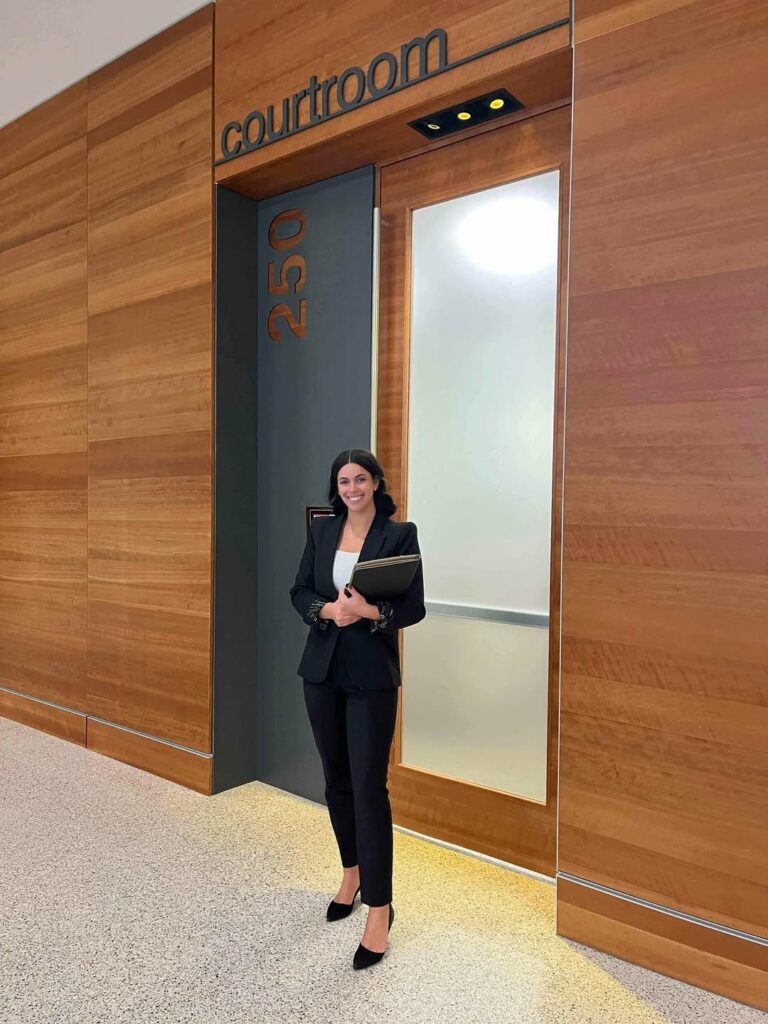
Mackenzie Roberts is a rising third-year law student at Drake Law School. She was a student attorney in the Children’s Rights Clinic during the Spring 2025 semester where she represented children in juvenile delinquency, child welfare, minor guardianship, and immigration matters before the Polk County Juvenile Court and U.S. Citizenship and Immigration Services.
After my 1L year, I felt burnt out. The whirlwind of cold calls, casebooks, and curve-induced self-doubt had left me wondering if the version of me who came to law school, driven by a desire to fight for others, had gotten lost somewhere along the way. But then I joined the Children’s Rights Clinic, and everything changed.
The clinic gave me more than practical experience. It gave me purpose again. From the very beginning, I worked directly with young kids whose lives were impacted by systems that too often fail them. Suddenly, everything I had learned in the classroom had weight. Every motion I drafted, every call I made, and every hearing I attended had a real-life consequence. I wasn’t just a student. I was an advocate.
One of the biggest lessons I learned in the clinic was how to center the client in every aspect of the case. It’s easy in law school to get caught up in legal theories or what looks good on paper, but clinic work reminded me that our clients are the ones living with the outcomes. I had to learn to ask better questions and really listen. Sometimes that meant adjusting strategies I had spent hours planning. But it was always worth it to see a child feel seen, heard, and in control of their own story, to feel empowered and as though they had someone in their corner.
Of course, the work wasn’t always easy. It stirred emotions I didn’t expect, and there were days I carried the weight of my clients’ stories home with me. Through supervision with Professor Nickole Miller, team debriefs, and a lot of personal reflection, I learned how to honor those feelings without letting them consume me. There’s space in this profession for compassion. I realized my empathy isn’t a liability. It’s one of my greatest strengths as a future attorney.
The clinic also gave me space to take risks, ask better questions, and push past the performative pressures of 1L life. In seminar discussions, simulations, and rounds, I stopped trying to sound like a lawyer and started learning how to be one. I learned how to trust myself, how to accept feedback not as failure but as growth, and how to stay grounded in the face of setbacks that come with practicing law.
Most importantly, this experience reminded me why I came to law school in the first place. It reconnected me with the fire that got me here—the drive to advocate for vulnerable people, to stand beside those navigating complicated systems, and to use the law as a tool for empowerment.
Saying goodbye at the end of the semester was emotional. Our clients were genuinely sad to see us go, and that stuck with me. It made me feel like we had done something right and that maybe we made a hard situation just a little less hard. That’s the kind of impression I hope to keep leaving throughout my career.
As I look ahead, I know this won’t be the last time I work with children and families. This clinic didn’t just prepare me for that work – it renewed my belief in it. And for that, I will always be grateful.

